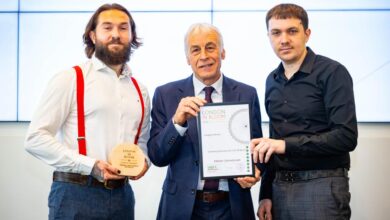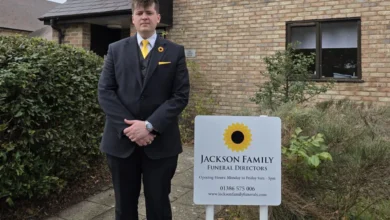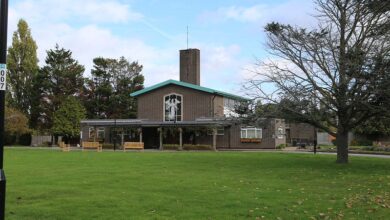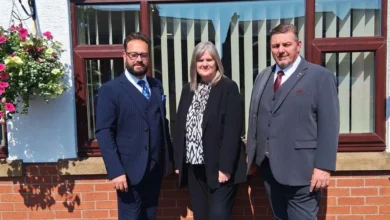Do your clients safeguard digital assets?

Register to get 1 free article
Reveal the article below by registering for our email newsletter.
Want unlimited access? View Plans
Already have an account? Sign in
Do your clients use social media, PayPal or online banking? Mike Jarvis asks how to safeguard digital assets after death
One result of living in the computer age is that we have learnt much about paradoxes; remember the promise of the paperless office? Ah, we are told, but everything is at your fingertips. Well it would be if nothing ever crashed, if we made scrupulous back-ups, and if only we had started out with a faultless system of folders and our spam filters didn’t suddenly develop prejudices of their own.
‘Chin up’, say the gurus, ‘our lives have been made easier’. Of course there is a lot of truth in that, but the other side of the coin is the possibility of a new problem after death: what about the digital legacy?
I remember discussing this with a private client lawyer in London several years ago and he was very concerned about problems which might, and probably would, arise. Since then the social media scene has grown at a rate and to a size beyond our imagination and there has been a similar enthusiastic take-up of a variety of financial services including online banking.
At first glance it might seem that there is little in the way of any possible connection between these developments and the funeral industry but a closer inspection will show how a knowledge of the inherent pitfalls and the resources that are available to help will be valuable.
At any time when a funeral director is in contact with the public in a professional capacity but outside the context of an immediate funeral (when arranging a funeral plan, or at a Dying Matters Awareness event, for example) there is the possibility that questions regarding this topic will be raised.
What are the problems, then?
Gary Rycroft, a solicitor who is Chair of the Law Society’s Private Client Advisory Committee, identifies four main areas:
- Online financial dealings – not just online banking, but eBay, PayPal, share dealing accounts and so on.
- Documents on a hard disk or in the cloud with web-based services which might have a potential commercial value.
- Digital assets with social value such as Twitter, Facebook and LinkedIn.
- Digital assets with sentimental value such as Flickr, YouTube and iTunes.
For advice as to how potential problems can be avoided, and resources that the funeral industry should know about, I have had detailed and illuminating conversations with Gary Rycroft and with James Norris of the Digital Legacy Association.
The Digital Legacy Association provides frameworks, training, promotes best practice, and raises awareness as to how each person can plan for death digitally. Their goal is to ensure that everyone is aware of what will happen to their digital footprint and their digital assets when they die. They strive to empower both professionals and society to take the relevant steps to ensure that each person’s wishes are adhered. Lack of awareness and planning often results in beneficiaries and the recently bereaved losing access to digital photos, videos and other digital assets like music, videos and eBooks.
Gary’s recommendation regarding financial assets is to make a digital directory that contains details of all of your online assets, social media accounts, logins and passwords. “It should be regularly updated”, he says. “This will allow your executors to be able to trace your assets and pass them on to your beneficiaries. This can be held securely with your solicitor.” The second point above relates to intellectual property and will be less common but the legal profession is well aware of instances where material like this has been overlooked by, or unknown to executors only for it to acquire commercial value at a later date. Anything of this nature should prudently be included in the digital directory.
Social media
James Norris of the Digital Legacy Association founded Dead Social, a social enterprise specialising in digital end of life planning. It provides independent tutorials, tools and resources to help empower society when addressing death in today’s digital world. All the tutorials and products it puts into the public domain are free.
James’s main recommendation regarding social media presence, the third point above, is the writing of a social media will and the appointment of an appropriate social media executor, a recommendation that is endorsed by the Law Society. The good news is that it need not be daunting as the Dead Social website gives access to comprehensive guidance and well thought-out templates. As well as ensuring the continuance of an online archive, the user can leave private messages to be sent after death via their digital executor. It’s all very well researched and simple to follow.
The last of the four main points, concerning digital assets such as Flickr, YouTube and iTunes, takes us back a step to good old fashioned hard copies. Both Gary and James agree that these sentimental downloads have the potential to be very problematic as they will have been accessed by way of licence agreements. In other words they can’t simply be passed on like a book or painting. One does not have the legal right to pass them on to chosen beneficiaries. As James says “take practical steps such as making sure you have back ups or hard copies of items you want beneficiaries to access after your death”. Gary agrees and adds “remember you should also list them in a digital directory”.
Dealing with digital legacies may seem to involve some complexities but it is very encouraging to see a range of helpful resource material so readily available. Here are some useful links:
- The Law Society – lawsociety.org.uk
- Gary Rycroft is a partner with Joseph A. Jones & Co of Lancaster – jajsolicitors.co.uk
- James Norris runs Dead Social – deadsocial.org and The Digital Legacy Association – digitallegacyassociation.org
- Mike Jarvis can be contacted at emdoublejay@icloud.com
Mike Jarvis, the author of this article, is a former manager of the Natural Death Centre. He has both written and broadcast extensively on funerary issues.







